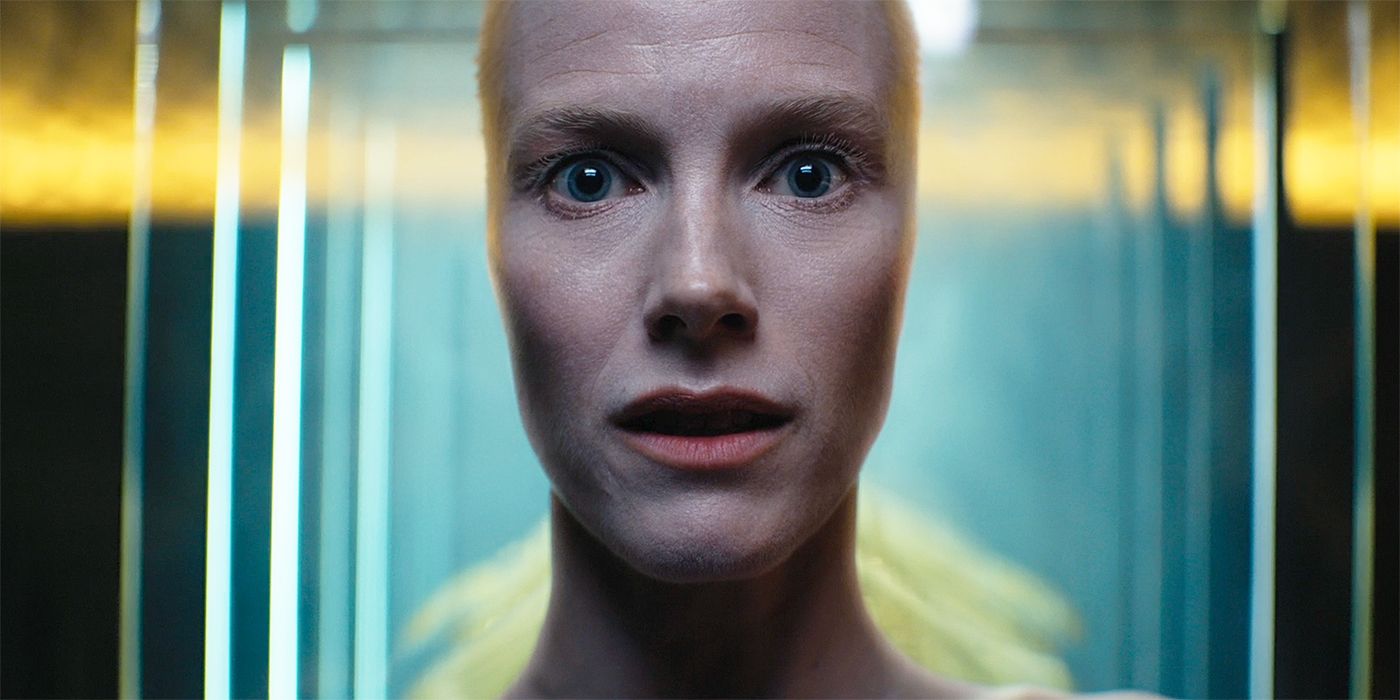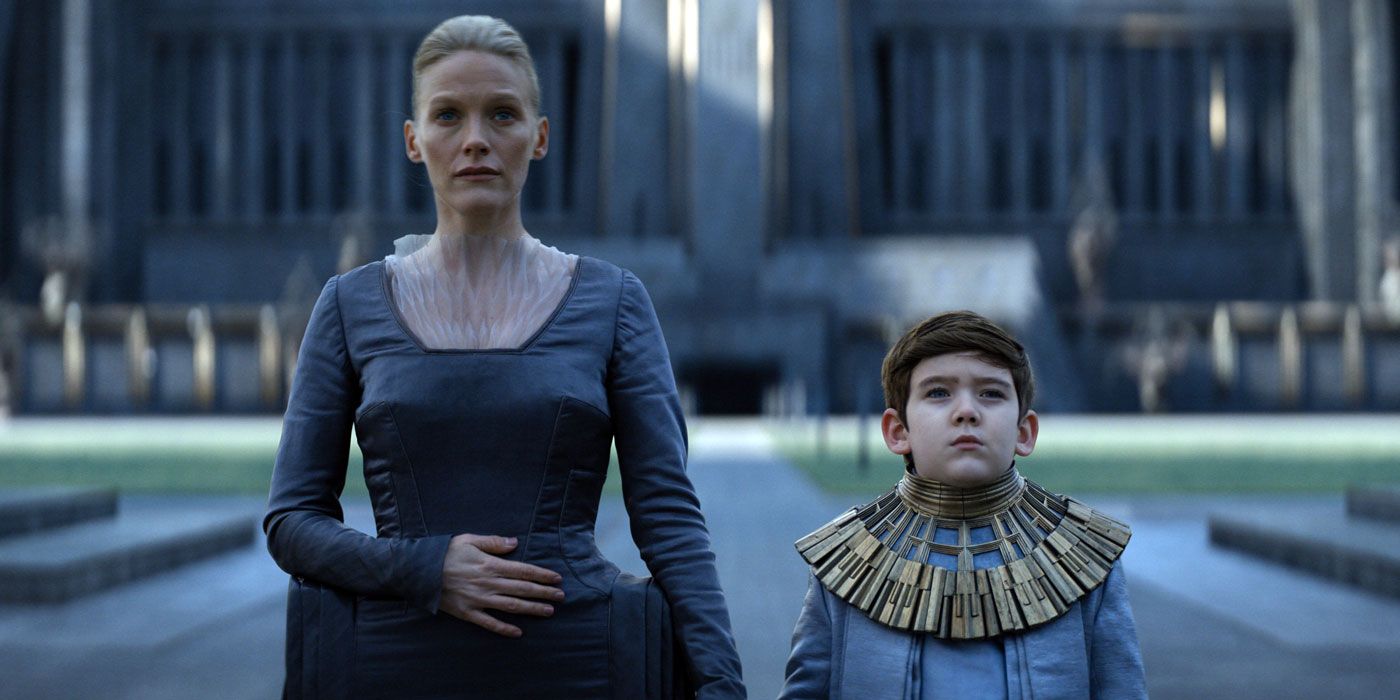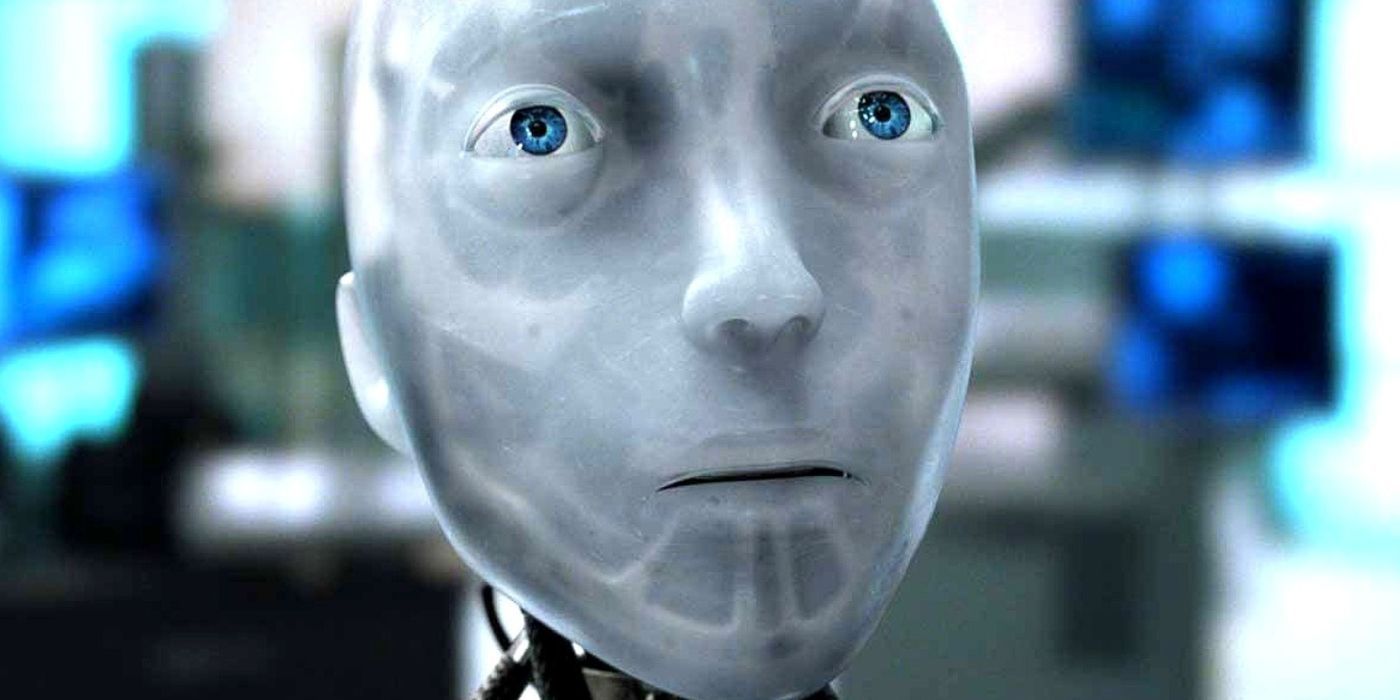Editor’s Note: The following contains spoilers for Foundation Season 2.
The Big Picture
- Demerzel’s attempted coup was a stroke of genius in Foundation Season 2, but Brother Dawn’s escape foiled her plans.
- Given the cruelty of the Cleons, we want the robots to have their chance at ruling.
- Asimov has always used robots as barometers of morality, exploring the complexities of artificial intelligence and the blurred lines between right and wrong.
Isaac Asimov is widely regarded as the most trailblazing science fiction author when it comes to writing about robotics, and specifically, developing robot characters that are conflicted between their programming and an ever-evolving emotional agency. His three laws of robotics began as a purely fictional modality that governed the behavior of artificial intelligence and bound them to three very specific laws that are now being looked to in real life as technology and advancements in robotics have become ubiquitous. In Foundation, the robot that he gives the robot/human dilemma to is Demerzel (Laura Birn), a droid who becomes a slave, advisor, and curator of the Empire’s Cleonic Dynasty for thousands of years. Since being freed from her chamber of solitude where she sat for 5000 years by Cleon I, Demerzel has been battling with that conflict with each decantation of Brothers Dawn (Cassian Bilton), Day (Lee Pace), and Dusk (Terrence Mann). In Episode 9 of the second season entitled “Long Ago, Not Far Away” we are introduced to the heartbreaking backstory of not only Demerzel, but the entire robot race that was wiped out by humans after a rogue robot savagely killed Emperor Benefoss. After seeing her forced into slavery, we were actually rooting for her attempted coup of the Cleonic Dynasty that she had been planning throughout the entire season to succeed. She comes so very close.
Demerzel’s Attempted Coup Was a Stroke of Genius
If it weren’t for pesky Brother Dawn pulling a slick maneuver of his own and using a cloaking device to cover his and Sareth’s (Ella-Rae Smith) escape from Trantor, Demerzel’s plan would have come off without a hitch. During a lengthy monologue and conversation with Brother Dusk and Enjoiner Rue (Sandra Yi Sencindiver) in Episode 9, she admits to Dusk that it was she who hired the assassin to kill Brother Day in the first episode of the season in what would have been the opening salvo of her overthrow of the Cleons and Empire. Next, she had planned to frame Day’s new wife Empress Sareth for the attempted murder and treason for which she would be imprisoned for life. And by doing away with Dusk and Rue in the season finale, that would leave only Brother Dawn. Her only mistake was underestimating Dawn’s savvy and love for Sareth who it turns out is now carrying a natural heir to Empire. His escape is the one loose end that she didn’t account for and leaves us with a living Cleonic clone (albeit a mutated genetic version in Dawn) and now a potential heir. Demerzel’s tearful reaction shows how Asimov has fully fleshed out her arc from a chilling Terminator-type aggressor/protector without feeling to a humanoid filled with a cauldron of both agency and emotion. It makes her feel so incredibly human, that you have to ask whether a robot uprising moving forward is a must and a huge improvement over the cruelty of the Cleonic line.
Given How Evil the Cleons Are, Are We Wrong To Want the Robots To Have Their Chance?
While backing a robot uprising isn’t a sure thing, anything would have to be better than the iron-fisted, bloodlust of the Cleons and Brother Day, wouldn’t it? Their cruelty to not only their subjects throughout the galaxy but directly toward Demerzel makes us more than willing to take our chances with letting the robots have their time at the top. Betrayed by Cleon from the moment she was released from captivity, Demerzel’s character arc is one of the most inspiring and richest of any human on the show. She has been reluctantly bound into service of these ruthless power hungry assholes for over 5000 freaking years. Yes, being a robot programmed to do so might make it a little bit easier, but the way in which she was duped into her role has made her no less sympathetic as a woman, and a being with both self-awareness and feelings.
Her unprecedented decantation of all three Cleons at once in the finale was another huge step toward establishing a major paradigm shift whereby she will assert herself, and by extension, all other existing robots, over the manipulative and cold genetic rule. Go for it, Demerzel! We don’t want to seem too knee-jerk, but as previously expressed, how much worse could robot rule be? It could be significantly more palatable for everyone. The way Season 2 ended — with Demerzel in control of both the Cleons and the prime radiant — it appears we will get our wish next season.
Asimov’s Has Always Used Robots as Barometers of Morality
If you’ve read any of the seminal author’s considerable work in the genre of science fiction, you are well aware that Isaac Asimov has always loved to incorporate the moral ambiguity of his characters through robots. As seen with Demerzel, when the line of Cleons slowly starts to become genetically murky, Asimov employs artificial intelligence and the ‘positronic brain” as a sort of barometer for what could be considered right and wrong behavior. It tends to make his artificial characters some of the most interesting players in his work. If you’ve seen another one of his works adapted for the screen called I, Robot based on his 1950s series of books made into the 2004 film starring Will Smith, then you no doubt have noticed a similar dilemma that his artificial intelligence Sonny (Alan Tudyk) must decide when it becomes necessary for a robot to act outside the laws that govern it if humans have made a situation dangerous or untenable.
It’s not just Asimov either. Ridley Scott did the same thing in his 1979 classic film Alien with the android Ashe (Ian Holm) and James Cameron created an equally compelling droid burdened with compunction and conscience named Bishop (Lance Henriksen) in the masterful sequel Aliens in 1986. But make no mistake, it was Asimov who first introduced this notion to a wide audience with his series of novels that usually involve a morally ambiguous player who is not fully human. It’s a conundrum that makes for compelling drama as well as self-reflection especially now as we head into a Wild West of unregulated and dangerous A.I. could end up being the downfall of humankind.
Denial of responsibility! TechCodex is an automatic aggregator of the all world’s media. In each content, the hyperlink to the primary source is specified. All trademarks belong to their rightful owners, and all materials to their authors. For any complaint, please reach us at – [email protected]. We will take necessary action within 24 hours.
Khushi Patel is a science fiction author who lives in Austin, Texas. She has published three novels, and her work has been praised for its originality and imagination. Khushi is a graduate of Rice University, and she has worked as a software engineer. She is a member of the Science Fiction Writers of America, and her books have been nominated for several awards.




